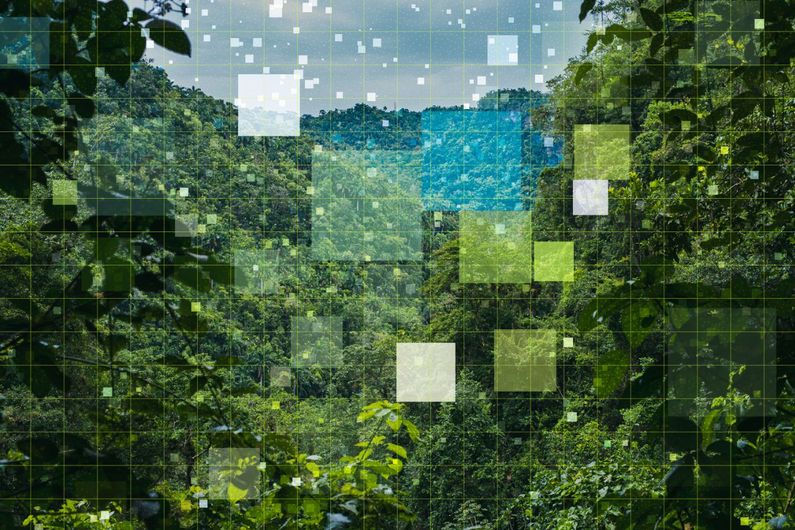When AI helps protect the environment
- UdeMNouvelles
11/10/2023
- Virginie Soffer
The number of fields where AI can be applied is endless. A donation from UdeM alumni Hugo Larochelle and Angèle St-Pierre will advance applications in environmental protection.
Université de Montréal will spend the next few years studying how artificial intelligence can help protect the environment. This initiative was made possible by a $1-million donation last December by UdeM computer-science professor Hugo Larochelle and his wife Angèle St-Pierre.
Larochelle is also a researcher at Google Brain, and he and St-Pierre are both graduates of UdeM. We spoke to the couple to find out more about how AI can help the environment.
Why do you think we should invest in artificial intelligence and the environment?
Hugo Larochelle: My interest in artificial intelligence goes back more than 20 years, before I started my PhD in computer science with Yoshua Bengio. I’ve always been sensitive to environmental concerns, as many of us are. But for a long time there was no direct connection between these two fields. Today the science and technology of AI, which I’ve been lucky enough to be involved in, are advanced enough for us to think about how AI can play a critical role in developing new solutions to protect our planet.
Has either of you already worked on projects in this area?
Hugo Larochelle: I recently started working more directly on how AI can be applied to the environment. Mélisande Teng (a PhD student who I co-supervise), Yoshua Bengio, several other collaborators and I studied how AI can be used to predict the presence of various bird species based on satellite imagery. This kind of work aims to design systems that can study biodiversity anywhere on Earth. Ecologists could use systems like this to be better informed when making recommendations to governments.
What other kinds of important environmental research could AI be useful for?
Hugo Larochelle: The climate crisis is without a doubt our most urgent problem. AI could help develop new green technologies. We could use it to perfect new, more energy-efficient batteries, which would support the energy transition and encourage the use of renewable energy sources. AI is also behind some recent advances in nuclear fusion, which could eventually become a revolutionary source of green energy for our society.
Why is environmental protection so important to you?
Angèle St-Pierre: Environmental protection is something we’ve cared deeply about for a very long time. We’ve previously made efforts to get politicians interested in independence from oil and we try to be greener in our day-to-day lives. A healthy environment is essential for humans to have good lives. We’re worried about future generations, including our (four) daughters. We feel that, in addition to raising our children to share our values and educating them about current issues so they can continue the efforts we’re making today, we need to act now.













